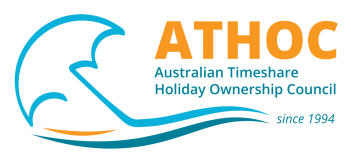What Are the Different Types of Timeshare?
If you’re thinking of buying timeshare in Australia, all the different terms out there can be confusing. Many timeshare websites focus on American timeshare, and often talk about things like ‘deeded timeshare’, ‘fractional ownership’ and ‘leasehold timeshare’.
This article will help you understand what you’re buying by covering the three main types of timeshare in Australia, which are:
- Fixed-week timeshare
- Floating-week timeshare
- Points-based timeshare
We’ll explain what each type is, what’s good about it, and what’s bad about it.
Keep reading to find out which type of timeshare is right for you.
Sold Out Legacy Timeshare Schemes
Developed in the late 80’s and early 90’s, the majority of Legacy Timeshare Resorts are ownership of a fractional interest in the Land and a share in a company which leases the land for 99-years. Fractional Interest land owners and shareholders are the same people. When the timeshare scheme winds up then the property is sold and timeshare owners receive a disbursement of the net sale and company proceeds in accordance with the number of weeks they own.
You pay an Annual Levy which covers the operating cost of the property and include items such as Insurance, Rates and Taxes, Housekeeping services and capital replacements.
Weeks are generally held with either a Friday or a Saturday arrival and departure, some Resorts offer a Friday or Saturday arrival and departure.
What Is a Fixed Unit Fixed-week Timeshare?
Fixed-week timeshare means Owners own in a certain unit for a certain week each year.
Here’s an example of fixed-week timeshare. You buy timeshare that lets you stay on the Gold Coast at River Resort each year from 1 June to 8 June. Your week is held automatically for you to use each year unless you advise otherwise.

What is a Fixed-week timeshare?
Fixed weeks are specific weeks in the calendar that are of High Demand such as Christmas and School Holiday periods. Again your week is held automatically for you each year unless you advise otherwise for example depositing to an exchange company or renting through the Resort rental pool (if applicable) or privately renting to a third party.
Fixed-week Pros and Cons
Pros
| Cons
|
What Is Floating-week Timeshare?
These are the remaining weeks of the year outside of fixed and holiday week periods.
For example, you might purchase a week’s worth of time at a Resort each year, but you wouldn’t be restricted to a specific time of year. You could book your stay whenever you wanted within the floating week calendar, as long as you book in advance. The booking windows for Resorts are typically 10 or 12 months in advance.
Like fixed-week timeshare, floating-week timeshare lets Owners book a one week each year for the duration of their timeshare ownership so long as they have paid their annual levy. Some timeshare resorts offer split use for 3 and 4 nights that can be used at different times of the year. These stays are subject to an additional cleaning fee at the commencement of the 2nd stay.
Floating-week Pros and Cons
Pros
| Cons
|

Resale of Legacy Scheme timeshare
You can resell your ownership (there are various resellers or listing sites in Australia), advertise it privately on websites such as ebay.com.au or gumtree.com.au or you can gift it to family or friends.
Refer ATHOC membership companies
What Is Points-based Timeshare?
Points-based timeshare is the most flexible type of timeshare.
Instead of owning weeks of time, owners of Points-based timeshare purchase a certain amount of Points (which are like timeshare currency). They can use their Points to book stays in a resort or hotel, and, each year, their Points are renewed, allowing them to keep booking holidays.
Most Points-based timeshare programs have a long lifespan. Under Australian law, timeshare programs can exist for up to 80 years, at, which point, Owners can vote to either:
- Wind up the program, and sell the program’s assets. If this happens, profits are normally divided among the Owners.
- Continue the program.
Points-based timeshare has become extremely popular, because it allows owners to book stays in different locations for different amounts of time each year, making each holiday exciting and unique. Timeshare can also be passed on as a gift or an asset to children or grandchildren – it’s known for providing Owners with a ‘lifetime of holidays’.
Here are some terms you might here associated with Points-based timeshare.
- Club: A Points-based timeshare program. Most Clubs own multiple properties, and Members/Owners can use their Points to stay at different Club properties.
- Member or Owner: The people or organisations who have purchased Points from the Club.
- Responsible Entity (RE): The company that is responsible for the operation of the Club. The RE is legally required to protect the interests of the Club’s Members/Owners. The RE does things like:
- Organise maintenance
- Manage the Club’s finances
- Acquire new properties
- Developer: The company that originally created the Club and continues to help manage it. The Developer does things like:
- Provide marketing for the Club
- Sell new Points
- Recommend properties for the Club to purchase
- Help with administrative functions of the Club
- Vacation Credits or Première Points: Other terms for ‘Points’.
- Holiday Club or Vacation Club: Other terms for ‘Club’. Which One Is Better?
Points-based Timeshare Pros and Cons
Pros
| Cons
|
Summary
There are three main types of timeshare:
- Fixed-week timeshare
- Floating-week timeshare
- Points-based timeshare
Major timeshare operators now sell Points-based timeshare schemes because of its greater flexibility over owning a timeshare week in a specific resort.
Wondering how to get the most out of your timeshare? Talk to an ATHOC advisor for free. We’re Australia’s independent, non-profit timeshare body, and it’s our job to help Owners like you use their timeshare in the best way possible.


















